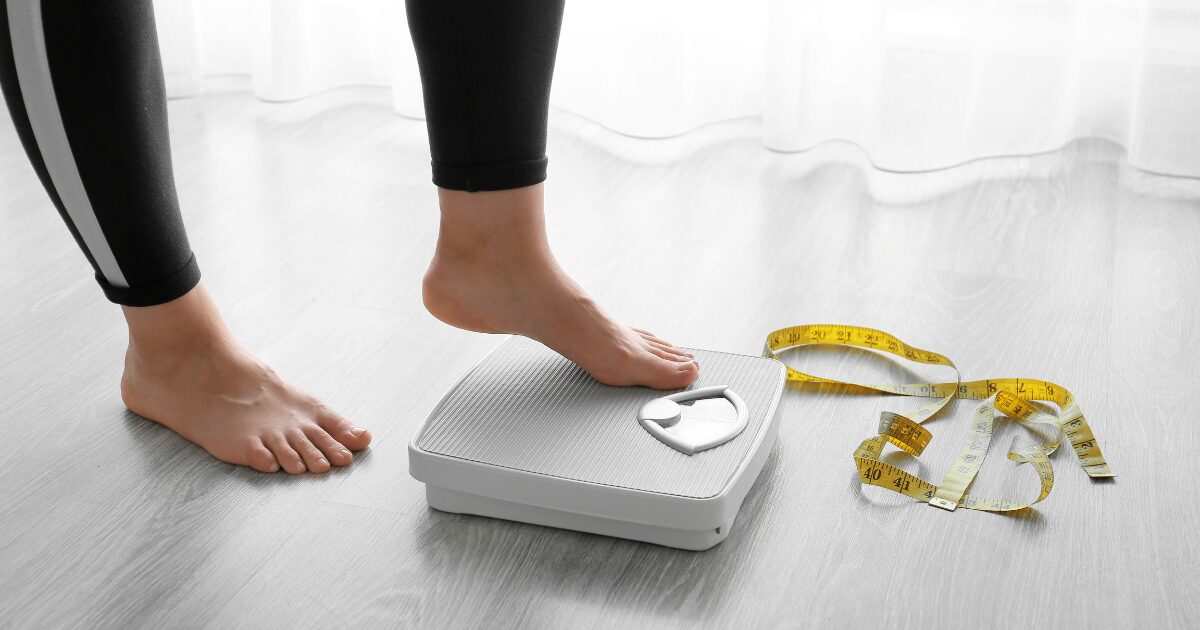You might know about the ketamine drug, which is expected as a treatment for anxiety and depression. But you may be surprised to know about ketamine weight loss. Yeah, this drug has caught the attention of many researchers and physicians about how it can help in shedding your extra pounds, as it’s mainly the drug to treat mental disorders.
Ketamine infusion therapy is trending and a new approach to losing weight, especially for individuals with eating disorders and anorexia nervosa. In this therapy, this drug will target specific receptors of your brain and follow the diet plan known as the ketogenic diet.
Let me show you how your mental health affects your weight and how a drug for anxiety and depression can contribute to weight loss.
What is Ketamine?
Ketamine was initially used as an anaesthetic drug, which has been used in surgeries and for pain relief in the 1960s. It was just like an ordinary drug used during the surgery. But, lately, it has been discovered that ketamine has made waves in mental health, especially for treating depression.
There was no specific treatment before to treat mental disorders like anxiety and depression. So, this medicine got quick popularity. It is practical to treat psychiatric disorders like bipolar disorders, major depressive disorders (MDD), and post-traumatic stress disorders.
Recently, research showed that as this drug is involved in mental health, it might have a potential effect on weight loss, too. Since there is no evidence that it is directly related to weight loss. However, it might help in treating the mental issues that may lead to weight gain.

How Does Ketamine Work?
When you take ketamine, it affects the brain by blocking NMDA receptors. The receptors play a crucial role in how we process pain and emotions. By doing this, ketamine offers rapid relief from symptoms like depression or chronic pain.
However, unlike traditional antidepressants that can take weeks to show results, ketamine often works within hours. It’s like flipping a switch that helps break the cycle of negative thoughts and feelings.
The Relation Between Ketamine and Weight Loss
There’s a very famous term nowadays: Ketamine Weight Loss. So, it is crucial to know the relationship between ketamine and weight loss and whether it can help shed extra fat. The theory revolves around ketamine’s ability to reset specific brain pathways.
For many people, weight gain is due to depression and anxiety because it triggers emotional eating. Ketamine can help you eradicate these issues from the root. By defeating depression, you can eat mindfully, which will contribute to weight loss.
However, it’s essential to consider that research in ketamine weight loss is still in its early stages. No solid research yet can prove that ketamine is directly related to weight loss.
How Ketamine Might Aid Weight Loss?
Here are the ways that how ketamine might help you shed your extra pounds:
Appetite Suppression
It has been found that people with depression and psychiatric issues are more likely to gain weight. The reason behind this is emotional eating and cravings. Depression and anxiety will trigger emotional and unplanned eating, which can be the leading cause of weight gain.
Ketamine will help you to ease these mental issues. So, it can lead to a reduced desire to eat. So, you will start eating more planned foods, aiding you in weight management.
Mood Regulation and Emotional Eating
As we have discussed, ketamine is a drug used to treat psychiatric disorders. You might be aware that when you are down, you feel more hungry and take in extra calories compared to a pleasant mood. So ketamine will help you regulate your mood, and you can take over emotional eating.
Increased Motivation for Physical Activity
Finally, ketamine’s impact on motivation is worth noting. Depression and low energy can make it hard to find motivation to exercise. Ketamine can help by lifting your mood and increasing your overall energy levels.
When you mentally feel better, you’re more likely to practice physical activity, which can help you lose weight.

Ketamine Treatment for Weight Loss
Ketamine is effective for treating mental issues, so you will take the treatment until you are facing that mental problem. However, your doctor can tell you the exact period of how long you can use ketamine. However, here’s a quick overview of who can take ketamine and how to administer it.
How is Ketamine Administered?
There are several ways to administer ketamine to your body. The most common way is intravenous (IV) infusion, which delivers the drug directly into your bloodstream. This method is common because it ensures quick effects.
Another option is a nasal spray, a more convenient and less invasive procedure. Some treatments also use oral tablets or intramuscular injections.
Who is a Candidate?
Ketamine can be an effective drug for weight loss, but most people can’t take it. This drug is suitable for those people who are facing obesity problems but their obesity is due to mental disorders or emotional eating.
They may have depression, anxiety or anorexia nervosa, which is triggering weight gain. So, these people can take ketamine to treat those psychiatric issues and get more control over their eating habits.
However, people with certain medical conditions, such as uncontrolled high blood pressure, might not be suitable candidates for ketamine treatment. So, always consult your health specialist before taking ketamine.
Expected Outcomes
In the short term, some people may experience a reduction in appetite and an improvement in mood, which can lead to initial weight loss. However, the long-term results can vary. Ketamine isn’t a quick fix, and its effects on weight loss are still being studied.
For lasting results, it’s recommended to combine ketamine treatment with lifestyle changes, such as a balanced diet and regular exercise.

Side Effects of Ketamine
Like all other medications, ketamine also comes with several potential side effects. One of the most common side effects is dissociation. It can make you feel disconnected from reality or your surroundings.
Another side effect is nausea, especially when ketamine is administered via IV infusion. Some patients also report dizziness or a feeling of lightheadedness during or after treatment. These side effects often pass quickly, but they can be uncomfortable in the moment.
Ketamine can also affect your mood and cognitive function, leading to temporary confusion and memory issues. So, if you notice any severe side effects, you must see your health professional immediately.
How Do I Get Started with Ketamine for Weight Loss?
If you are looking to take ketamine for weight loss, the most important thing is to consult with a healthcare provider who has experience with ketamine treatments. Not all doctors offer this service, so you might need to seek out a specialist that focuses on ketamine therapy.
Once you have found the professional, you have to discuss whether you are a right fit for ketamine treatment or not. If you’re deemed a suitable candidate, your doctor will tell you about the treatment plan, method of administration (like IV infusion or nasal spray), and the result and side effects.
Remember that you need proper administration while taking a ketamine treatment. Don’t rely on the drug; adopt a balanced diet and workout to get the desired results.
Final Thoughts
Ketamine is effective in treating psychiatric disorders like MDD and PTSD. It can help you to treat mental disorders like depression and anxiety quickly. However, ketamine infusion therapy can also help reduce weight.
Depression and anxiety may lead to emotional and unplanned eating, which is a significant cause of weight gain in many individuals. So, ketamine will help you to eliminate all these triggers very effectively. It can also help boost your energy and motivation level for physical activity, supporting weight loss.
However, there is limited research on the relationship between ketamine and weight loss. So, whenever you think of opting for ketamine for weight loss, consult your doctor first for personal suggestions.
Are You Using Ketamine?
As depression and anxiety are common in many individuals nowadays, ketamine is getting popular day by day. If you have been using ketamine, tell us that it helps you to lose weight. And what are the other benefits or disadvantages you have noticed after using ketamine? Share your insight in the comments or contact us here.
Frequently Asked Questions
Does ketamine slow your metabolism?
Ketamine does not directly increase metabolism but may influence appetite and mood. There is no substantial evidence to suggest that ketamine significantly affects metabolic rate. While ketamine can influence appetite and overall energy levels, it does not explicitly slow metabolism.
Is ketamine an opioid?
No, ketamine is not an opioid. It is a dissociative anaesthetic that works by affecting NMDA receptors in the brain rather than interacting with opioid receptors like opioids do.
Does ketamine cause constipation?
Ketamine is not commonly associated with causing constipation. However, some individuals might experience gastrointestinal issues, including nausea or abdominal discomfort. It could indirectly affect bowel movements.
What are low-dose ketamine side effects?
Low-dose ketamine can lead to a few side effects:
- Mild dissociation or feeling detached from reality
- Dizziness and lightheadedness
- Nausea
- Temporary mood changes or confusion
Does ketamine cause weight gain?
No, ketamine does not cause weight gain. However, few individuals can reduce weight by controlling emotional eating and doing physical activities after using ketamine. Yet, individual responses may vary.
What are ketamine injection uses?
Here are some of the uses of ketamine injections:
- Anaesthesia: Used for general anaesthesia in surgical procedures.
- Pain Management: Provides relief for acute and chronic pain.
- Depression: Administered in low doses to treat treatment-resistant depression and mood disorders.
- Post-Traumatic Stress Disorder (PTSD): Used off-label to alleviate symptoms of PTSD.
- Anxiety Disorders: Helps in managing severe anxiety conditions.
- Sedation: Used in emergency settings for rapid sedation.
Does ketamine therapy get you high?
Ketamine therapy can produce a dissociative or “out-of-body” experience, which some people might describe as a feeling of being “high.” This effect is generally transient and closely monitored during treatment.
Who is not a good candidate for ketamine therapy?
People with substance abuse, high blood pressure or heart disease, and severe psychiatric disorders may not be suitable candidates for ketamine therapy. Pregnant women should also avoid ketamine therapy.
How long does ketamine stay in your system?
Ketamine has a relatively short half-life of about 2-4 hours. It is mainly metabolised and eliminated from the body within 24 hours.
Does ketamine slow the heart?
Ketamine can affect heart rate but usually does not slow the heart. It involves the sympathetic nervous system, increasing heart rate and blood pressure.





